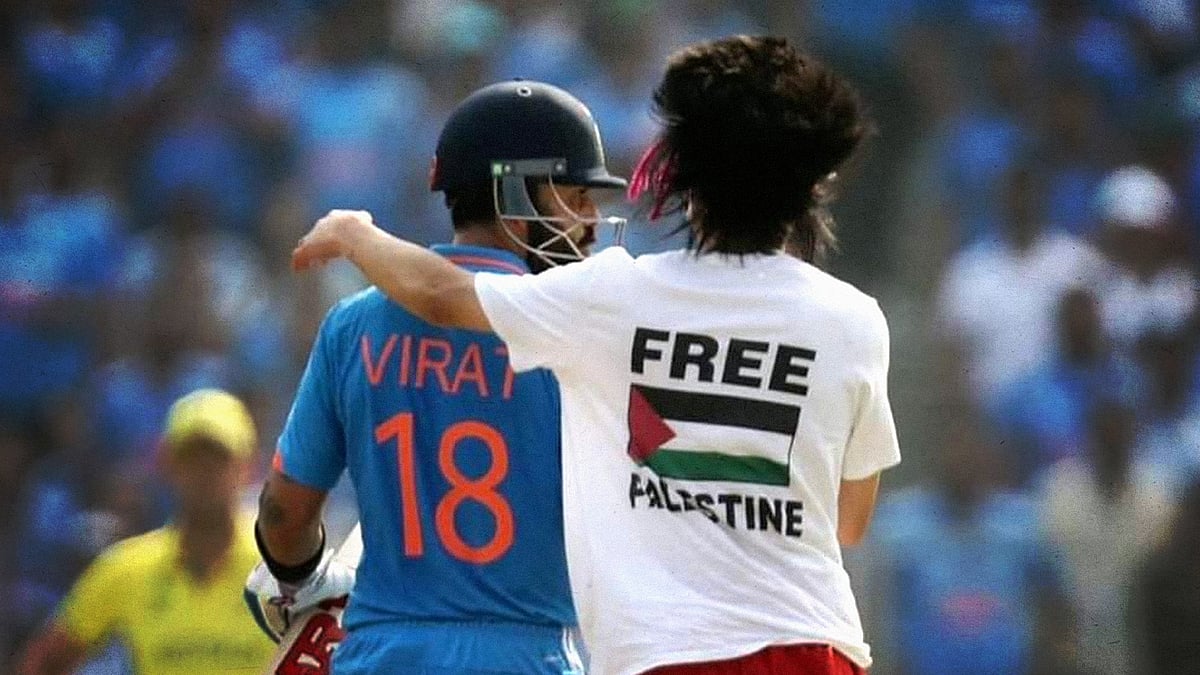There’s no quibbling about genocide: Lessons from the ICJ order in South Africa vs Israel
There has been confusion over the past week over which side ‘won’. Here is what you need to know.
You never walk out of a boxing match wondering who won. But watching the news and reactions to the International Court of Justice’s order last week in South Africa’s genocide case against Israel, you might have been confused.
On one hand, the court found that the allegations of genocide were plausible and ordered provisional measures. Surely this was an indication that the state of Israel had transgressed the law. But then the court did not direct a halt to military operations, which the international community had been calling for in its general assembly resolutions.
The confusion has been compounded by the range of media reporting on the judgement – from those hailing it as a triumph of a rules-based international legal system, to those criticising it for not doing enough , to those painting it as an outright win for Israel.
Israel’s own leaders have derided the judgement but are quick to discern a silver lining. Prime Minister Benjamin Netanyahu said: “Like any state, Israel has the basic right of self-defence. The court justly rejected the disgraceful demand to nullify that right.” Itamar Ben-Gvir, the security minister, put out a pithy two word tweet – “Hague Shmague”.
He could have saved his wit. There is only so much one can spin.
These are the facts:
Israel is on trial for genocide. Had the court rejected the application on provisional measures, it could have justly claimed an exoneration. But the finding of plausibility in the allegations, which cross the threshold required for the grant of provisional measures, is damning. Israel is truly charged with the crime of the century. The long life of an ICJ proceeding means that for the next five years or so, this prime facie finding will hang over the state. The shield of impunity that Israel has enjoyed so far is no longer whole.
It is worth remembering The Gambia v. Myanmar, the case of genocide being perpetrated against the Rohingyas. When the ICJ gave a materially similar order, there was no quibbling about what that order meant for the international community and Myanmar’s place in it.
The provisional measures as have been granted, if honoured in letter and spirit, are sufficient to slam the brakes on the Israeli military juggernaut. They include a direction to prevent genocide in all forms, defined as “deliberately infliction on the group conditions of life calculated to bring about its physical destruction in whole or in part”. Therefore, conditions of starvation, indiscriminate bombing and strikes, denial of access to medical and humanitarian aid are all – as of Friday – impermissible.
What is left to Israel is what was always permissible – targeted military operations to uncover and neutralise Hamas assets. Israel is under an obligation to abandon its scorched-earth strategies and fight a proportionate action, while providing humanitarian access and basic services. Even if no genocidal intent is ultimately found on the part of the state of Israel itself, a failure to prevent a genocide by taking necessary steps is also a violation of the Genocide Convention, as found by the Court in the case of Bosnia & Herzegovina v. Serbia.
The US, UK and Germany – three of the strongest proponents of Israel’s right to defend itself and its actions in Gaza – must now reckon with a finding which would involve complicity in genocide on their part. Can the US Congress continue green-lighting arms sales and Security Council cover without qualms? If the court ultimately finds guilt, however likely or unlikely that may be, complicity in genocide in punishable under the convention.
One understanding that seems to be floating around the internet is that the court was unlikely to direct a cessation of a military operation, or has never ordered that particular provisional measure, and it represents a significant intrusion on the sovereignty of a member state. After all, war is per se legal. Exactly such an order has been granted by the ICJ, by some of those very judges, less than two years ago in Ukraine v. Russian Federation. In that case very little evidence, if any, of genocidal intent or widespread civilian loss of life was adduced. Therefore, the suspension of military operations was always an option on the table.
Language and historical amnesia
But beyond the realpolitik repercussions of the situation, what can we learn from what happened legally? What are the implications of the order?
South Africa placed a wealth of material before the court in its written and oral pleadings to show that there was genocidal intent on the part of the state of Israel. The most damning were statements issued by the prime minister, defence minister, energy minister and other officials in power. These were blood-curdling declarations dehumanising the Palestinians as a whole. The prime minister repeatedly invoked biblical passages describing the wiping out of the Amalekites – men, women, infants and sucklings, and described the battle at hand as being between the “children of light” and the “children of darkness”. Numerous officials voiced a clear intent to cut off food, water, fuel and electricity.
In a shocking number of statements by Israel’s officials and commanders, targets were described as “animals” or “human animals”, while the words “extermination” and “flattening” appear multiple times.
This dehumanising rhetoric is not new to any student of the history of genocide. Similar language was used by the Nazis (“vermin”) and was used over Radio Television Milles Collines in Rwanda (“cockroaches”). For that matter, none of this language is beyond the imagination of anyone who has heard “khoon ka badla khoon se lenge” or “desh ke gadaaron ko, goli maaro saalon ko” in the context of India’s own recent history. This rabid dog-whistling clearly shocked the conscience of the court and several of those quotes were extracted in the final order. The court directed Israel explicitly to prevent and punish the direct and public incitement of genocide.
During the hearing, Israel’s counsel took pains to write off these statements as being misunderstood, as applying only to Hamas, or as being expressions of understandable rage in the heat of the moment. However, intention is something that must be discerned primarily from action, and all of those statements have been followed with direct action in exactly those terms.
The two key principles of international humanitarian law are proportionality of action and distinction between combatant and civilian, and Israel’s actions in Gaza answered to neither rule. The ICJ was, of course, not dealing with a case under the Geneva Conventions, but these principles cannot have been far from the court’s mind in interpreting the Genocide Convention.
A queer sort of historical amnesia seems to have befallen the court. In the majority opinion, the factual narration starts with October 7, 2023. It is as if there was no prior history to that day, no special historical conditions which may have operated, no reason for unrest, no background to terrorist action. The curtain rises on that day, with Hamas’s horrific attacks in the foreground. It is only in the separate opinions of Judges Barak, Sebutinde and Xue that the question of the history of Palestine is addressed, however fleetingly.
The court need not have such a short memory, for it has earlier dealt with the issue of Israel’s treatment of Palestine in the Legal Consequences of the Construction of a Wall in Occupied Palestinian Territory Advisory Opinion in 2004. The court had then concluded that Israel had breached international law in establishing settlements in occupied territory and that, in building a wall, the ultimate effect was one of annexation. The court had considered and set out numerous violations of the civil and political as well as social and economic rights of the Palestinian people, and held Israel’s invocation of its right of self-defence was irrelevant in that context.
Reading the Wall in the backdrop of Gaza is severely instructive, and it was a very relevant precedent, which finds no mention in the court’s judgement.
A longstanding cynical view remains that the UN and other multilateral bodies are impotent and helpless in the face of real geopolitical power, and this has been exacerbated by the gravity of what has taken place in Gaza. For months, resolution upon resolution of the General Assembly for a ceasefire has been passed with thunderous majorities, only to be ignored by the Security Council. The Secretary General, the UNRWA, UN Human Rights Commissioner and special rapporteurs, UN Women, and the Red Cross made plaintive statements and cries for peace – all of which seemed to fall on deaf ears.
But now, these statements have found themselves tabulated and on record. Some of the most significant of them have been reproduced in the order as prima facie evidence of a factual situation. Multilateral institutions have the power to set a normative agenda and to make authoritative recordings of fact. In a post-truth political environment, where governments rely so heavily on spin-doctors and online narrative control, positions taken by organisations of neutrality possessing prima facie legitimacy still have importance.
One must sound a note of caution. ICJ orders are observed as much in their breach as in their being followed. From Nicaragua v. United States and the Wall to Ukraine v. Russian Federation and The Gambia v. Myanmar, even the most celebrated of judgments are unlikely to be followed to the letter. They rely on the Security Council for their enforcement and, as we have seen, veto power in the Security Council remains the domain of true hard power.
However, sometimes, a ruling will find its highest use in subsequent proceedings. A suit filed by NGOs against President Biden and other top officials in the United States, alleging complicity in genocide and seeking injunctive relief, was dismissed on jurisdictional grounds on the same day by the ICJ. But even while dismissing the suit, the federal judge noted the finding of plausibility in the ICJ order and, adding to it his own views on the evidence he had gone through, implored his government to review “the results of their unflagging support of the military siege against the Palestinians in Gaza”.
One very real legal and human consequence of this order finding allegations of genocide plausible is on the position of Palestinian refugees. States who receive refugees from a genocide situation are under an obligation of non-refoulement under customary international law, as well as specifically under the Refugee Convention and the Genocide Convention.
Countries which may face a possible influx of refugees are Egypt and Jordan, and the positions they have taken show how unwilling they are to handle such a crisis. India’s own stand in the context of Rohingya refugees fleeing the genocide in Myanmar has been perplexing – the union of India’s solemn statement before constitutional courts has been to deny any duty of non-refoulement.
While the ICJ’s order could have gone much further to end the suffering of innocent civilians in Gaza, there is a sense of the chickens coming home to roost. In the 21st century, with universally available recording and communications technology, the record writes itself. What could have passed unseen or unheard even a decade ago has now become immediately available evidence. What is now to be seen is how a declaration of rights found to be live and in peril will translate into actions.
Satyajit Sarna is a lawyer and writer based in New Delhi.
 Pro-Palestine protests in India: The sentiment exists. Authorities just don’t want you to see it
Pro-Palestine protests in India: The sentiment exists. Authorities just don’t want you to see it  Fools rush in: Dear celebrities, get your PR reps to do some research before posting online
Fools rush in: Dear celebrities, get your PR reps to do some research before posting online